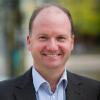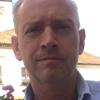Join us as an early career researcher
As an early career researcher at IIASA you are integrated into a research group of typically 10-20 researchers, from junior to senior, as well as into a bigger IIASA research program that typically covers several research groups.
Within your research group you are likely addressing challenges with an interdisciplinary team of colleagues with different backgrounds, trained in different modes of thinking. Brace yourself for a lot of input and interesting conversations!
At IIASA you are supervised by one or more senior IIASA scientists who guide you in your learning of new methods and tools, and support you in the development of your research ideas and skills, including how to generate and interpret research results. As these skills develop you grow into positions of more and more independence and responsibility, connecting more and more fields of knowledge and practice. Our mentoring program supports researchers at all levels in reflecting on their career paths and challenges ahead.
Our researchers are used to working in culturally diverse environments and are very approachable. Go and talk to them, many have an open-door policy and will lend you a friendly open ear.
Much of IIASA research is about data and models. At IIASA you have access to the most up-to-date relevant data and converse with the developers of the most sought-after decision support tools. Your own research is supported by teams of friendly professionals, including IIASA’s Library and Knowledge Management team who give you access to all the literature you need faster than you can ask for it.
Beyond the circle of your immediate colleagues you are part of a vibrant community of interdisciplinary early career scientists. They support each other and share experiences in their career development. They self-organize regular seminars to share progress and meet regularly for lunches and social activities to build an international professional network. There are more opportunities to get to know researchers in other parts of the institute, be it through intellectual activities such as seminars and workshops, or through social events and activities (of which there are many, one of them explicitly called Enlarge your Social Circle at IIASA) or through one of the many clubs at IIASA.
Apropos international network: as a IIASA staff you have access to a large international network of alumni, who are keen to maintain links with IIASA and might be able to help you in taking your next step. IIASA also collates information on career and development opportunities for early career researchers, including information on grants and fellowships, and supports you in writing and submitting applications.
Much of IIASA’s work is very applied and some of it actually supports decision makers in very concrete ways. Thus, at IIASA you have opportunity to interact with decision makers, understand their perspectives on the world and their specific domain, and reflect this in your work.
Still not sure what applied systems analysis is? IIASA offers introductory courses on systems thinking and systems analysis to get an overview. Also, as a participant in IIASA’s systems analysis reading group you can expose yourself to different approaches to systems analysis and become and experienced systems analysis with a broad array of tools. Most importantly, at IIASA you are immersed in research on systems analysis and will directly experience at least one perspective.
Some of our early career scientists pursue a PhD at a local university in parallel. If this is an option for you, talk to your supervisor and the CDAT unit about it. IIASA also offers collaboration through partnerships with other organizations, such as the Complexity Science Hub Vienna.
Coming to IIASA as an early career researcher can boost your own career substantially. Some of our past early career researchers have become researcher leaders at IIASA. Others have become researchers and professors elsewhere, some have joined international organizations, and some have started their own businesses.
IIASA regularly offers research skills training, both informally and formally, and gives you opportunity to apply for funding to take part in external training events.
As a regular IIASA staff member you have access to IIASA’s parental and family benefits.
Living in Vienna is one of the perks of working at IIASA. Vienna has been voted repeatedly one of the most livable cities in the world. Whether you like music, the arts or just to hang out in a city of culture, water and skiing, whether you like outdoor activities or traveling in Europe, Vienna is in the center of it all and offers more than you can make use of.
 © IIASA
© IIASA
IIASA Connect
offers a platform for connecting our international systems analysis community. Are you part of our early career network? Join today.
News

18 November 2022
Understanding supply chain disruptions: a Q&A with IIASA postdoctoral fellow Célian Colon
Célian Colon is a research scholar in the Exploratory Modeling of Human-natural Systems Research Group of the IIASA Advancing Systems Analysis Program and a Peter E. De Jànosi Postdoctoral Fellowship holder at IIASA. He recently sat down with 2022 Science Communication Fellow, Jakob Angeli, to talk about resilience, his career path, and why throwing money at COVID-related research can be counterproductive.

18 November 2022
Understanding supply chain disruptions: a Q&A with IIASA postdoctoral fellow Célian Colon
Célian Colon is a research scholar in the Exploratory Modeling of Human-natural Systems Research Group of the IIASA Advancing Systems Analysis Program and a Peter E. De Jànosi Postdoctoral Fellowship holder at IIASA. He recently sat down with 2022 Science Communication Fellow, Jakob Angeli, to talk about resilience, his career path, and why throwing money at COVID-related research can be counterproductive.

16 September 2022


